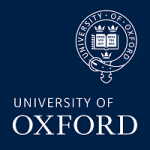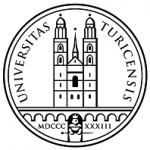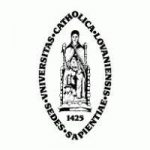项目介绍
About the course
As a DPhil in Molecular and Cellular Medicine student you will spend up to four years (eight years for part-time students) in one of the department’s many research groups, working on a project supervised by the group’s principal investigator. You will take part in the extensive training programme specifically organised for graduate students within the department.
The NDORMS department aims to discover the causes of musculoskeletal and inflammatory conditions to deliver excellent and innovative care that improves people’s quality of life. The department consists of three different centres/institutes, the Botnar Research Centre, the Kennedy Institute of Rheumatology and the Kadoorie Centre containing a number of world leading research units. There are two separate graduate programs one for the Botnar and Kadoorie institutes and one for the Kennedy Institute of Rheumatology each with different entry requirements and application procedures.
You will develop your research skills through a range of research training in your first year, including compulsory attendance at our fundamentals in biomedical research lectures in your first week. During the first term you will develop, in consultation with your supervisor, a clear study design for your project.
Your training will be tailored to your particular needs, drawing from the vast range of training available at Oxford and covering specialist scientific methods, techniques and transferable skills. Please note that there is no formal taught component of the DPhil in Molecular and Cellular Medicine; however, you will develop your research skills through a range of research training in your first year. This will include compulsory attendance to core subjects with lectures on a variety of topics such as an introduction to “immunology, inflammation, tissue engineering, clinical trial design, epidemiology, rheumatology, orthopaedics and musculoskeletal disease”.
During your first year, you will be expected to attend a minimum of three topic-related modules. Attendance on a two-day Data Analysis: Statistics Designing Clinical Research and Biostatistics course is compulsory to assist you with appropriate research design. You are also encouraged to work with your supervisor(s) on your research-specific literature review and to develop a study design for your thesis within the first term (two terms for part-time students) of your research training.
You will be required to attend and present at postgraduate seminars, not only to develop your presentation skills but also to benefit from the feedback, support and interaction from your University peers and senior academics.
As a member of Medical Sciences Graduate School, you will be entitled to attend various workshops run by the Medical Sciences Skills Training programme. Further academic and pastoral support will be provided for by the Departmental Graduate Studies Team which consist of the Director of Graduate Studies as well as the departmental Graduate Studies Officer and Assistant. Further support is available from your college advisor.
Applicants are strongly advised to visit the department’s website (see Further Information and Enquiries) to help them identify the most suitable research topic and related supervisors. Projects are available in both basic and translational science covering a variety of areas related to musculoskeletal and chronic inflammatory conditions.
Supervision
The allocation of graduate supervision for this course is the responsibility of Medical Sciences and the Nuffield Department of Orthopaedics, Rheumatology and Musculoskeletal Sciences (NDORMS) and it is not always possible to accommodate the preferences of incoming graduate students to work with a particular member of staff. Under exceptional circumstances a supervisor may be found outside Medical Sciences and NDORMS.
In the case of students who require specific help to adjust to an academic programme or to a new range of skills, the supervisor will work with them to ensure that they have additional support.
All students must have at least two supervisors (usually a Primary Supervisor and a co-supervisor). At the beginning of your programme, you will meet with your supervisors regularly to finalise your project and agree on an initial programme of research. Within the first three months, you will complete an analysis of your training needs for the duration of your research (TNA) with your supervisor and submit it as part of your compulsory termly reporting.
Regularity of student/supervisor meetings will be agreed between the student and supervisors directly. Every student should meet their supervisors at least once per term; though it is expected that meetings will occur more regularly. A Thesis Committee is a compulsory second strand of supervisory support in the Kennedy Institute.
Assessment
Your progress will be monitored and assessed regularly via:
- completion of a termly report by you and your supervisors through Graduate Supervision Reporting (GSR);
- completion of a 5,000-word transfer report and viva before the end of the fourth term (eight term for part-time students);
- completion of a 3,000-word literature review by the end of the seventh term (students based in the Kennedy Institute only – 14th term for part-time students);
- confirmation of your status, by viva and presentation, before the end of the ninth term (18th term for part-time students); and
- submission of your DPhil thesis (the final stage), which will be assessed by viva at the end of your twelfth term (24th term for part-time students).
Stages 2, 4 and 5 will be assessed by independent senior academics.
Graduate destinations
The department follows alumni to establish the career paths of graduates. The majority of graduating students go on to pursue research careers in academic institutions or industry. Graduates also pursue careers in management, consulting, teaching, with science funding organisations, charities, and in scientific publishing/editing. A number of graduates have set up their own businesses (eg in editing).
Changes to this course and your supervision
The University will seek to deliver this course in accordance with the description set out in this course page. However, there may be situations in which it is desirable or necessary for the University to make changes in course provision, either before or after registration. The safety of students, staff and visitors is paramount and major changes to delivery or services may have to be made in circumstances of a pandemic (including Covid-19), epidemic or local health emergency. In addition, in certain circumstances, for example due to visa difficulties or because the health needs of students cannot be met, it may be necessary to make adjustments to course requirements for international study.
Where possible your academic supervisor will not change for the duration of your course. However, it may be necessary to assign a new academic supervisor during the course of study or before registration for reasons which might include illness, sabbatical leave, parental leave or change in employment.
For further information please see our page on changes to courses and the provisions of the student contract regarding changes to courses.
录取要求
-
a first-class or strong upper second-class undergraduate degree with honours in biological sciences and/or related topics.
联系方式
电话: +44 1865 270000相关项目推荐
KD博士实时收录全球顶尖院校的博士项目,总有一个项目等着你!






